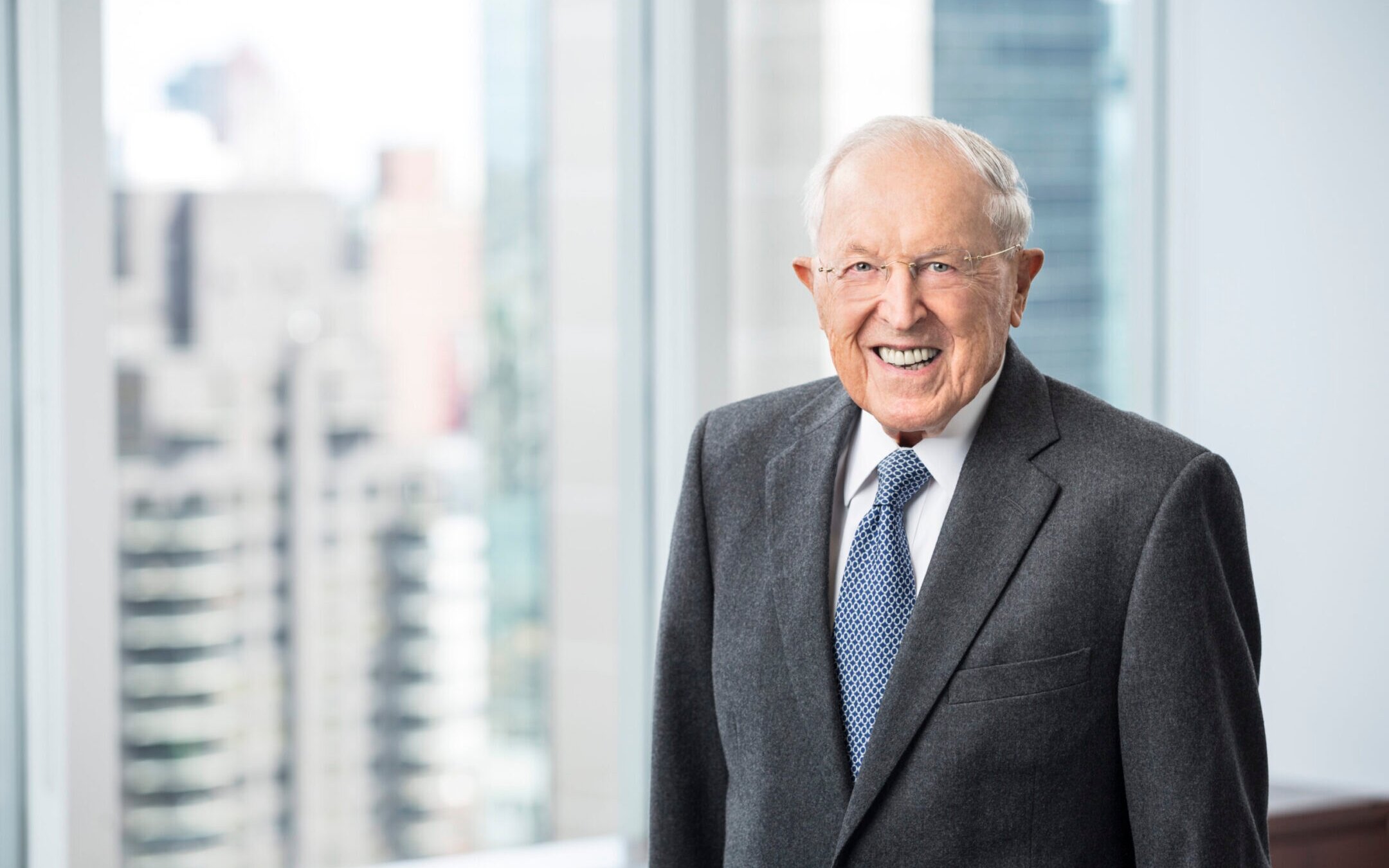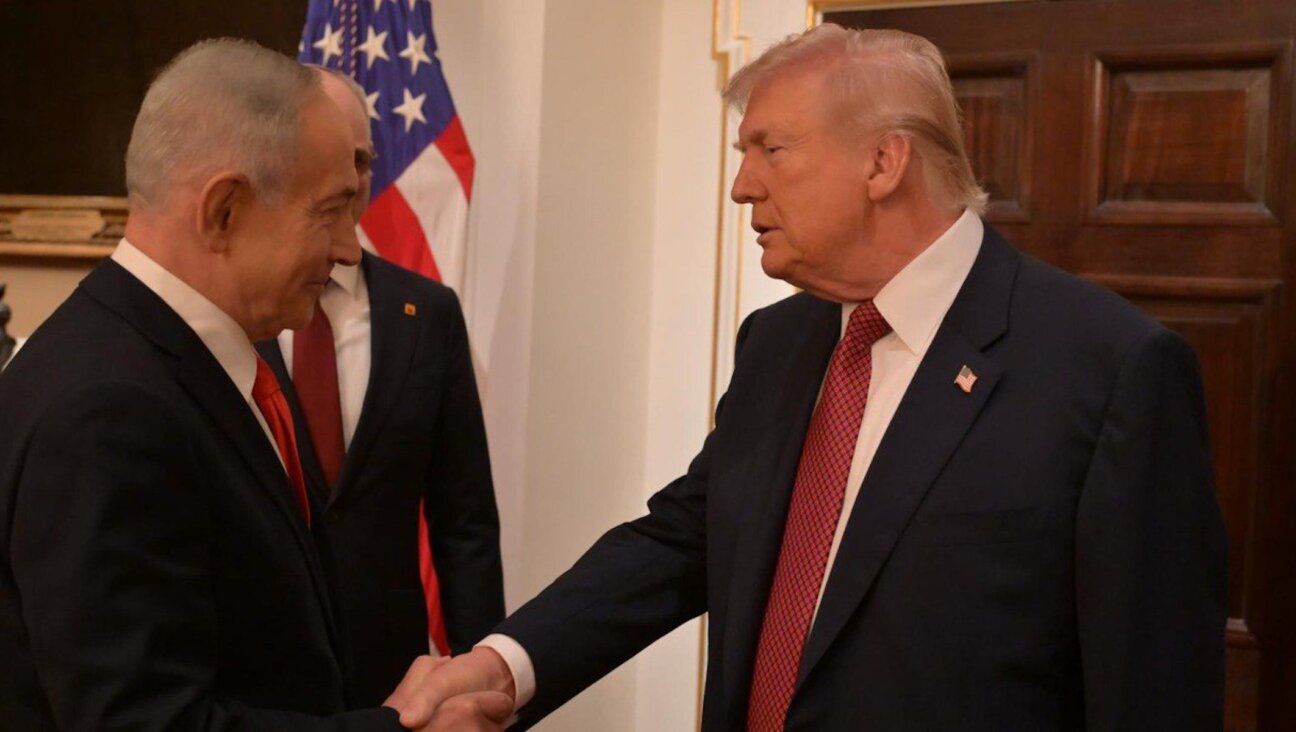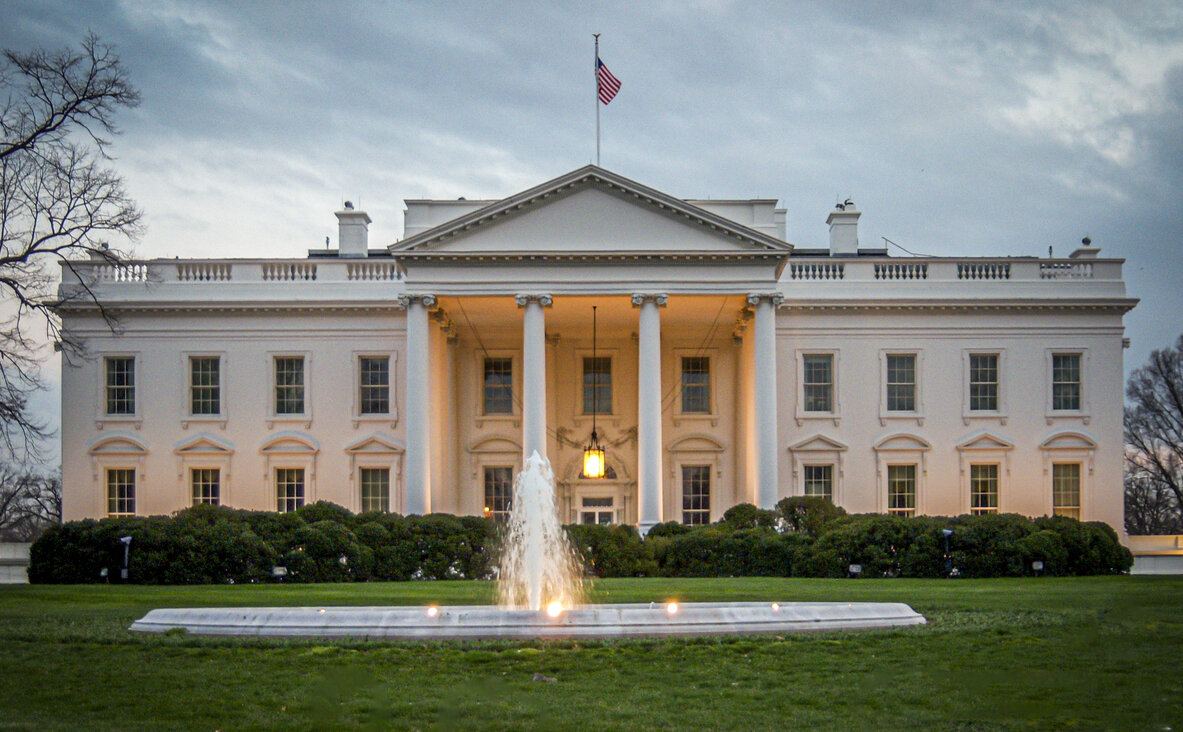David Gottesman, scion of Jewish philanthropic dynasty and Warren Buffett partner, dies at 96
He carried on a long-running family tradition of Jewish philanthropy while also becoming one of the most successful investors in the United States

David “Sandy” Gottesman was a businessman and Jeiwsh philanthropist who died Sept. 30, 2022. (Matt Greenslade/photo-nyc.com; courtesy of the Gottesman family)
(JTA) — David Gottesman, who carried on a family tradition of Jewish philanthropy while also becoming one of the most successful investors in the United States, died at 96 on Wednesday.
Gottesman’s involvement in finance and Jewish causes began with his birth, to Benjamin and Esther Gottesman, in 1926. Benjamin Gottesman was a banker who had already become a trustee of Yeshiva University, home to the rabbinical school that his own father, Mendel, a paper manufacturer, had helped found; he served in that role until his death in 1979. Mendel Gottesman had started a family foundation devoted largely to supporting Yeshiva University and its library, which ultimately was named for him.
After a stint in the U.S. Army at the end of World War II, Gottesman, who was known as Sandy, went to college and then Harvard Business School before heading to Wall Street. There, he got connected with Warren Buffet, then an up-and-coming investor, and the two struck up a fast friendship.
Gottesman was an early investor in Berkshire Hathaway, the company that for a time made Buffett the richest man in the world. The return on his investment was massive: This year, more than half a century after making the investment, Forbes estimated his net worth at $3 billion and placed him at No. 358 on its list of 400 wealthiest Americans.
Gottesman sat on Berkshire Hathaway’s board, but his relationship with Buffett was far from transactional. “Absent Sandy doing anything financially for me, we would have been the best of friends,” Buffett told The New York Times for an obituary.
Gottesman opted to remain largely out of the limelight. But through a family foundation he launched with his wife Ruth in 1965, he continued the Jewish giving that had long characterized his family. In addition to his father’s giving, his mother Esther was largely responsible for securing the Dead Sea Scrolls for Israel and building the distinctive inverted-dome structure that houses them near the Israel Museum. She worked with Samuel Gottesman, Benjamin’s brother, to do so, and his descendants have carried on a philanthropic legacy of their own.
In 2019, the Gottesman Fund disbursed more than $26 million to dozens of groups and institutions, many of them Jewish, including Jewish day schools associated with multiple denominations. The fund also gave to New York City civic and arts groups; Planned Parenthood and other groups focused on reproductive rights; and organizations funding civic improvements in Israel. (The fund also supported the digitization of the Jewish Telegraphic Agency’s archive from 1923 to 2008.)
Gottesman’s giving in particular changed the landscape of Jerusalem, where he financed an aquarium, a bike path around the city and the new building being constructed for the National Library of Israel, across the street from the Knesset, or Israeli parliament.
“Sandy’s legacy will be felt in the landmark new Library building and I regret deeply that he will not see this magnificent project through to its completion,” Sallai Meridor, chairman of the library’s board, said in a statement. “The new building, and educational activities that will take place within, are testament to his generous commitment and true friendship to the National Library of Israel.”
Gottesman is survived by his wife of 72 years, Ruth; their three children; and six grandchildren.
This article originally appeared on JTA.org.














